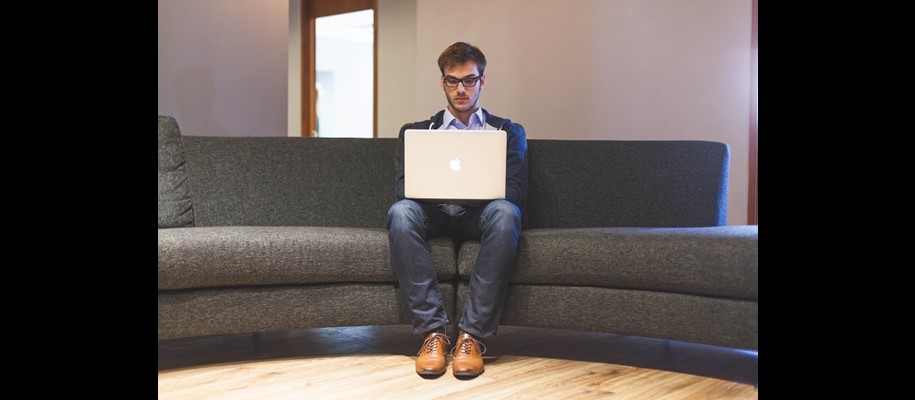
Which is Better? Working at the Office or Working from Home?
In 2013, a memo from Yahoo’s Human Resources department was sent all Yahoo employees, banning remote working;
“Some of the best decisions and insights come from hallway and cafeteria discussions, meeting new people, and impromptu team meetings”.
Virgin’s Richard Branson, however, was quick to voice his disagreement with Yahoo’s actions, calling it a “backwards step in an age when remote working is easier and more effective than ever.”
And a year later, in 2014, the number of people working from home in the UK rose to its highest ever levels, with 13.9% of workers remotely working – 4.2 million in total. 5% of these worked from home, while the remaining 8.9% used their home as a base but worked at different locations.
But is working from home really ‘better’ than working in an office?
Best for who?
Working from home affects more than just the individual employee. Managers must be sure they are able to effective communicate with their workers, especially those who don’t work in the office every day. They must remember to keep remote employees ‘in the loop’, whether that be via regular phone calls, emails or video messaging.
Managers want people in the office because they want to see their little empires there in front of them.
The main reason most employers aren’t in favour of home-working is because they don’t trust their workforce, according to Gary Cooper, professor of organisational psychology and health at Lancaster University Management School. “They’ll never say that, but that’s what it’s about. Managers want people in the office because they want to see their little empires there in front of them,” he says.
Business owners also need to evaluate whether or not allowing employees to work from home is a good idea or not. Smaller businesses might save money by having a team of remote workers – unless workers claim back for expenses used by working at home. Then there are information-security issues to consider. Is it wise to allow employees access to sensitive information in the comfort of their own homes?
As you are starting to see, remote working isn’t as simple as it may first appear, and your superiors have a lot to consider when you request to work from home.
But have you fully thought about the implications yourself? Working from home always sounds like a great idea – but there are considerations you should take into account if you decide to make the shift. Let’s look at the advantages and disadvantages of both office work and home work:
Working at the Office

If you’re reading this, I imagine you’ve most probably worked in an office at least once in your professional life. Desk jobs take up a large part of the work sector, especially in a digital world; now more than ever more work is done online, using computers and technology.
Whilst every office environment is different, all desk jobs share common features which we can all appreciate and understand.
Advantages of working in an office
- Easily distracted -Office workers get distracted every 3 minutes, and claim that workplace distractions are a major detriment to job satisfaction. Things like background noise levels, annoying colleague chit-chat and random, unexpected team meetings are among the top ways employees are distracted from their work.
- Office politics can be overwhelming - You can’t escape office politics at the office, and sometimes the fight for power can be overwhelming.
- Lack of personal space- Personal space is another important factor for job satisfaction, and some offices, particularly open-plan offices, can make employees feel uncomfortable.
- Bad for your health- Sitting down all day at your desk can seriously harm your health. If you work from home, you’re more likely to get up and move, and have more flexibility to schedule short 5 minute breaks and/or stretches to help combat the symptoms of prolonged sitting.
Working from Home

In an article published on Wired, Naveen Narayanan explains that the notion of “work” has changed. “Going to work is now less about being at a particular location, getting face time, chatting up with co-workers and being ‘in the office’. In arguably every industry, it is more about getting things done, servicing clients, completing projects, managing co-workers, etc., regardless of where you are.”
According to Wrike, 1 in 4 of us would accept a reduction in salary if it meant we could work from home. And it’s easy to see why…
Advantages of working from home
- No commute - The average monthly commuting cost for a UK worker is £161 and is 47 minutes long. This amounts to a large amount of money/time spent a year just on travelling to and from your place of work. Working from home eliminates this waste and allows you to better control your time and money.
- No uniform - Every day can be a pyjama day if you want it to be! There’s zero pressure to dress up in formal clothes, and you can wear whatever makes you comfortable.
- Control of your working environment - No more arguing over the thermostat or being cramped on a tiny desk. At home, you control the temperature, the lay-out and which radio station to listen to (if any). What’s more, you can decide whether or not you want to start at 8am, 9am or even 10am. This is especially helpful for parents who work from home. Just make you sure you complete the full amount of hours expected by your employer!
- Fewer interruptions (in theory) - The majority of those who work from home will experience less interruptions, as co-workers can only communicate with you via email or phone.
Disadvantages of working from home
- Increased costs? - Despite the savings on commuting costs, working from home can have its own costs that would normally be covered by your employer. You may see an increase in your utility bills from extra use of heating or air conditioning. You may also need to purchase equipment that you would normally use in your office such as printers, scanners or other equipment.
- Lack of focus and/or motivation – Working from home requires you to be disciplined and self-motivated. However tempting it may be to stay in bed or catch up on TV, you must be able to get keep yourself focused on your work. Working from home can make you feel like you’re ‘invisible’ and ‘untouchable’, and you don’t have the presence of your co-workers and manager to motivate you to work.
- Lack of social interaction with co-workers – As much as your co-workers annoy you, many of us crave social interaction of some form. You might find yourself experience bouts of loneliness if you work from home for long periods of time, especially if you are unable to get out much at the weekends.
- Work-life balance can become distorted - When you work in an office, you have a clearer definition between your work at your private life. Working from home blurs the line between your professional and private life.
- No IT department – In the office, if your computer breaks or the internet goes down, there’s usually an IT worker nearby who will deal with the issue. Your boss is alerted to the problem, and is the one who has to deal with any financial consequences. When you work from home, you may find yourself unable to work if your internet goes down or if your computer breaks – especially if it’s your own and not issued by your employer.
- Alienated from company developments - A lot can happen at the office in an average working day: morning meetings, company updates, team developments, successes, problems etc. If you’re working away from the office for long periods there will be a great deal of information that you will miss out on.
The Verdict
As we can see, there are a lot of factors to consider when thinking about whether or not you should work from home. Not everyone has that certain combination of skills to successfully work remotely (self-motivation and focus, for example), and not all jobs lend themself to remote working.
There are those who retain the belief that things are best done face-to-face; “Teams need to be in daily contact and nothing beats physically sitting and reviewing work together to gauge people’s initial reactions and true thoughts,” says Jim McCall, MD of digital agency The Unit. “Teams [at The Unit] have ‘stand-ups’ every day, using agile boards [white boards with columns and tasks] that workers need to physically interact with.”
Despite this, people who work remotely are reported to be more satisfied with their jobs, and there are those – like Richard Branson – who think office jobs are becoming a thing of the past.
I think we are at the #TippingPoint of a fully digital society. Soon, working in an office will be #oldwaytowork pic.twitter.com/iYqPvwSI7j
— Mark Bean (@markbean) March 15, 2015
One possible solution to the problem of dissatisfaction in the office is to improve workplace environments by making them more comfortable for employees. This is already starting to happen, with more and more offices using innovative designs and flexible work spaces to promote workplace satisfaction and increase productivity.
The office should remain for those who want want the office
I’ve already mentioned, that it’s not always practical for employees to work remotely, and I don’t think the office is going to disappear any time soon. Robert Gorby, Powwownow’s marketing director, agrees; “the office should remain for those who want the office”.
But what do you think? Do you prefer working from the or from home? Why? Comment below or tweet us at @FullRangeFurni with your thoughts.
Latest Blog Posts

What Is a Huddle Room? Understanding the Modern Collaboration Space
Posted on 12/03/2024
54 Powerful Work-Life Balance Quotes to Inspire You
Posted on 26/02/2024
The Importance of Work-Life Balance: Strategies for Achieving Harmony
Posted on 22/02/2024
Hot Desking 101: Maximising Office Space and Flexibility
Posted on 20/02/2024